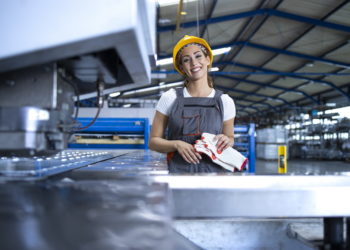In a world where corporate responsibility is no longer optional, brands are rethinking how they show up — not just in what they say, but in how they engage. Events have become a powerful extension of brand identity, and choosing the right event venues in London is now as much about values as it is about visuals. Increasingly, companies are seeking spaces that reflect their sustainability commitments, using events as platforms to demonstrate purpose in action.
Beyond Greenwashing: The Business Case for Authentic Sustainability
Over the past decade, sustainability has gone from an afterthought to a strategic imperative. Where once vague promises and green slogans might have sufficed, today’s audiences, whether customers, employees or investors, expect more. They want transparency, action and proof that brands are not only aware of global issues, but are actively contributing to solutions.
This shift has made authenticity the cornerstone of effective sustainability strategies. Consumers are quick to spot greenwashing, and brands risk reputational damage if their messaging doesn’t match their operations. Purpose needs to be more than a message — it needs to be embedded in every touchpoint, including live experiences.
Related article: It’s not just the events scene that has been bitten by the sustainability bug. Read about the rise of sustainable fashion in the UK.
Purpose-Led Events Are Becoming the Strategic Tool That Brands Didn’t Know They Needed
Events have always been how brands show up, but these days they’re doing more than just selling or networking. People are paying attention to what companies stand for, so events are becoming a way for brands to show that — through actions, not just words.
That’s why we’re seeing so many more purpose-driven events, not just in the UK but all over the world. It’s not just about ticking off a to-do list or following the latest trend anymore. Now, it’s a chance for brands to show what they care about. Whether it’s reducing waste, picking a venue that actually cares about sustainability, or supporting local businesses, every little choice adds up. It tells people what a brand truly believes in — and whether they’re actually living up to it.
Using Sustainability as Experience Design
More brands are moving away from treating sustainability like a checklist. Instead, it’s becoming part of how they shape the entire event experience. That might mean choosing venues that reflect environmental values, finding ways to reduce waste, using local suppliers, or limiting travel where possible.
In the UK, it’s becoming more common for planners to start with a carbon impact assessment. It’s not something added on later — it’s considered from day one.
That shift puts more weight on the venue. It’s no longer just the setting; it plays a role in what the event says about the brand. A well-chosen space can quietly communicate that sustainability matters — not just in words but through real decisions.
The Role Of Event Venues in London
London’s not just keeping up with the sustainability shift—it’s helping lead it. The city’s full of venues that have either been built with sustainability in mind or thoughtfully updated to reflect it. Old warehouses fitted with energy-saving systems, spaces that cut down on waste, work with ethical suppliers — it’s not just about what they offer, but what they stand for.
These days, picking a venue in London often means choosing one that shares your values. Many are already set up for things like renewable energy, low-impact menus, digital alternatives to printed materials, and real connections with local communities. For brands that want to show what they care about, not just say it, these venues make that easier.
Internal Engagement and Culture
Sustainable events aren’t just for show, they matter inside the company, too. More than ever, employees want to work somewhere that reflects their values, and environmental responsibility is high on that list. So when a company puts real thought into making an event sustainable, it sends a strong message to the team: we care, and we’re doing something about it.
It’s something people notice and it makes a difference. For younger talent especially, sustainability isn’t just nice to have, it’s expected. Hosting purpose-led events helps build trust, strengthen culture, and create moments that actually resonate. When sustainability shows up in the details — from how the event is run to what it stands for — it becomes something people connect with and want to be part of.
Reframing Success Metrics
Event success used to be all about the numbers: how many people showed up, how many leads came in, and how much buzz it generated. And sure, those things still count. But now, more companies are looking at a different set of questions too. How much waste did we avoid? Did we work with sustainable vendors? Could people join without having to fly in?
It’s part of a bigger shift in how businesses think. Sustainability isn’t just a nice extra anymore — it’s becoming a core performance metric. Tracking an event’s environmental impact is starting to feel less like a ‘bonus’ and more like something that just makes sense. It helps with reporting, yes, but more importantly, it helps you do better next time.
Digital Support and Hybrid Integration
Technology is playing a big part in making events more sustainable. Hybrid formats help cut down on long-distance travel without losing reach. And tools like digital tickets, agenda apps, and online surveys mean there’s less need for printed stuff or throwaway materials.
But it’s not just about cutting waste. A lot of this tech also helps track things — energy use, how people are engaging, what’s working behind the scenes. That kind of info makes it easier to understand the impact and adjust for next time. It’s a simple example of how sustainability and smart planning go hand in hand.
Local Partnerships and the Impact on Community
More and more, events are being used to do some actual good — not just for the brand, but for the people around it. That could mean working with local food vendors, donating leftovers instead of tossing them or bringing in community organisations to be part of the event.
In London, that’s pretty doable. There are already lots of local suppliers and groups set up for this kind of thing, so it’s not hard to build those connections in from the start. It’s a simple way to make an event feel more grounded and more useful.
Final Thoughts
Sustainability isn’t a box to tick anymore. It’s how a lot of companies are starting to work across the board. As ESG goals get more serious, events are becoming part of that bigger picture. They’re a chance to show what a company stands for, not just talk about it.
The venue usually sets the tone. It can influence everything, from who gets hired to what kind of experience guests have. In London, there are more and more venues built with sustainability in mind, which makes it easier to make choices that actually line up with your values.
When done well, events like this resonate. Guests walk away not just informed but inspired — connected not just to the product or message but to the purpose driving it all.











































































